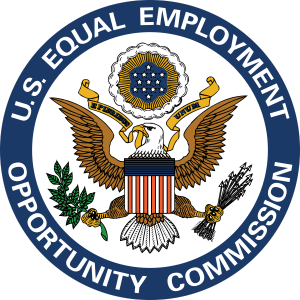 In response to increasing complaints about dress- and appearance-based religious workplace discrimination, the Equal Employment Opportunity Commission has released new guidelines for employers to insure compliance with laws protecting religious garb and grooming. The guidelines include a question-and-answer sheet on rights and responsibilities and a fact sheet on the applicable law. As reported, EEOC spokesperson Justine Lisser attributed the new guidance to a “persistent uptick in religious discrimination charges” and said the EEOC is responding to religious groups, who “asked for more EEOC outreach in this area.”
In response to increasing complaints about dress- and appearance-based religious workplace discrimination, the Equal Employment Opportunity Commission has released new guidelines for employers to insure compliance with laws protecting religious garb and grooming. The guidelines include a question-and-answer sheet on rights and responsibilities and a fact sheet on the applicable law. As reported, EEOC spokesperson Justine Lisser attributed the new guidance to a “persistent uptick in religious discrimination charges” and said the EEOC is responding to religious groups, who “asked for more EEOC outreach in this area.”
Title VII of the Civil Rights Act of 1964 protects against discrimination based on religious dress and grooming. According to the EEOC press release, Title VII-covered employers “must make exceptions to their usual rules or preferences to permit applicants and employees to follow religiously-mandated dress and grooming practices unless it would pose an undue hardship to the operation of an employer’s business. When an exception is made as a religious accommodation, the employer may still refuse to allow exceptions sought by other employees for secular reasons.” Underlying this new discussion of existing protections and new guidelines is the fact that, according to the press release, complaints of religious discrimination have more than doubled since 1997.
We have reported on dress- and grooming-based job discrimination and policy changes over the past year (here concerning hijabs at work, here at the Pentagon, here on the costs of litigating these issues, and here concerning gendered hair policies) and more examples of religious discrimination are noted here. Constitutional protections for religious dress and grooming in a variety of settings are discussed in the Dressing Religiously chapter of Dressing Constitutionally.
[image via]
